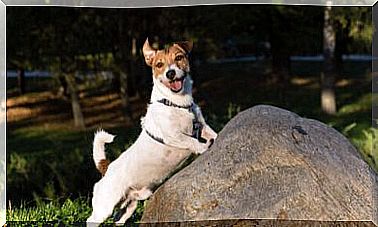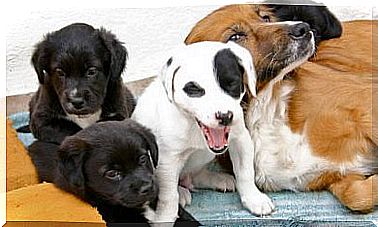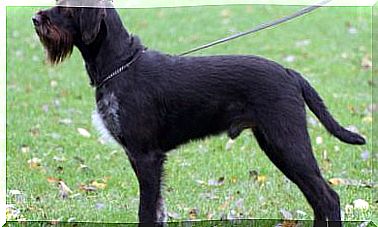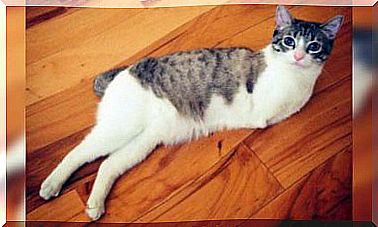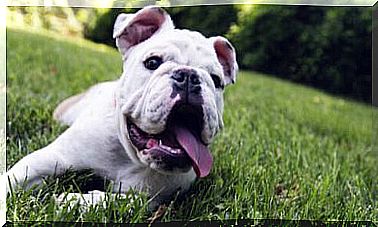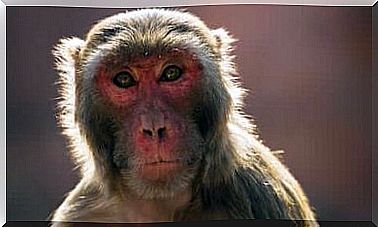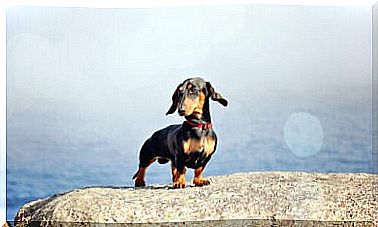Nutrients Your Horse Needs
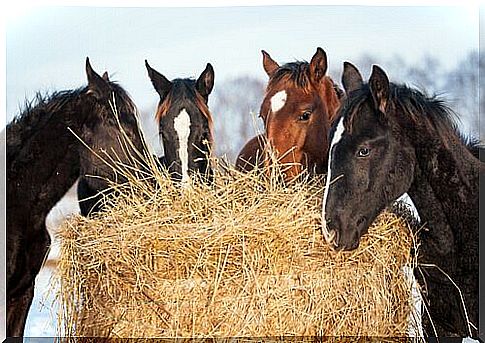
Horses are beautiful animals that have always been characterized by their strength and nobility. If you’ve decided to have one, you must know how to properly feed it.
What nutrients does your horse need? This question is the starting point for learning how to take care of them properly, in order to satisfy their basic physical and mental needs.
Knowing the horse is important in determining the feeding plan he will follow. You need to know your age, weight, stage of growth you are in and your routine of activities.
All these factors depend on your diet. His food needs must match these data so that we don’t run the risk of overfeeding him or not providing him with the nutrients he needs.
Feeding is a very important factor for each and every animal.
However, there are other important aspects to taking care of your horse. Among them, provide comfortable accommodation, a place to exercise, maintain proper hygiene of the environment and your coat, daily brushing and, of course, company.
Basic food for your horse
Forage is essential in the horse’s diet. It is necessary to analyze whether the animal is physically able to process large volumes of vegetable fiber.
If your digestive system has the enzymes that allow it to extract from food the energy needed to develop, maintain and reproduce.
Horses have a distinct digestive system from mammalian herbivores. That’s because your stomach is very small and your intestines are quite long.
For this reason, they are prone to digestive problems, cramps and intestinal blockages.
Horses need at least 60% fiber in their daily diet, in addition to the nutrients needed to maintain a stable gut flora.
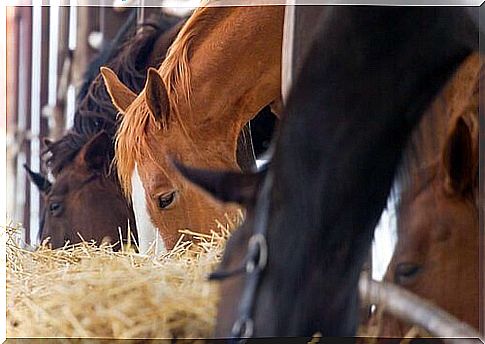
Main nutrients your horse needs
The horse basically feeds on hay, grass, straw and forage. To these foods we can add: cereals, hay, alfalfa and beet pulp.
It is necessary to create a balanced diet that includes the nutrients that provide the horse with an optimal life cycle, in order to minimize the risk of digestive problems.
In order for the animal to perform well in all its daily activities, it is important that any feeding program includes the following nutrients: water, proteins, vitamins and minerals.
There is no definitive formula for the amount of each of these nutrients that should be included in the diet.
This will largely depend on the horse’s particular characteristics and feeding needs.
Water, minerals and vitamins
Among the nutrients your horse needs are the group of vitamins that are water soluble and vitamins that are fat soluble. The main ones are: vitamins A, D, E, K and B complex.
Some of these vitamins are obtained by adding them to their daily forage, others are metabolized by the horse’s own body when grazing or by exposure to the sun outdoors.
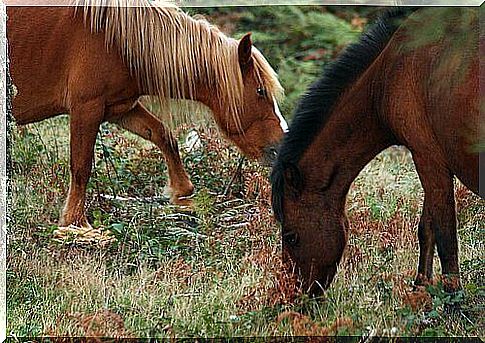
Horses need different minerals in their diet to carry out their activities efficiently. Among the most important are calcium and phosphorus.
Calcium is essential in bone formation and strengthening, and phosphorus helps activate B vitamins to metabolize carbohydrates.
In addition, other minerals are also healthy: sodium, copper, potassium, chlorine, iodine, zinc, magnesium, manganese, chloride and silicon.
Proteins
As for protein, another of the nutrients your horse needs, there are essential amino acids, such as lysine, which is essential in the growth phase.
This substance must be included in the diet in the form of soy flour or flaxseed and pulses (alfalfa, clover, etc.).
Other important amino acids are : alanine, arginine, aspartic acid, glutamic acid, carnitine, cysteine, creatine, glycine, histidine, methionine, phenylalanine or isoleucine.
Water and Carbohydrates
You must ensure that your horse has access to clean water at all times.
Remember to provide a minimum of 30 liters of water per day. This value will vary according to weather conditions. Grass, for example, can have high levels of fluids.
Carbohydrates and fats that provide energy should also be included in the equine diet. An insufficient power source can cause health problems.
All of these nutrients are essential for the development and strengthening of your horse’s bones, muscles, tissues, hormones and enzymes, which will help regulate your body’s basic functions.
This way, you can always enjoy the company of a strong and healthy horse.
